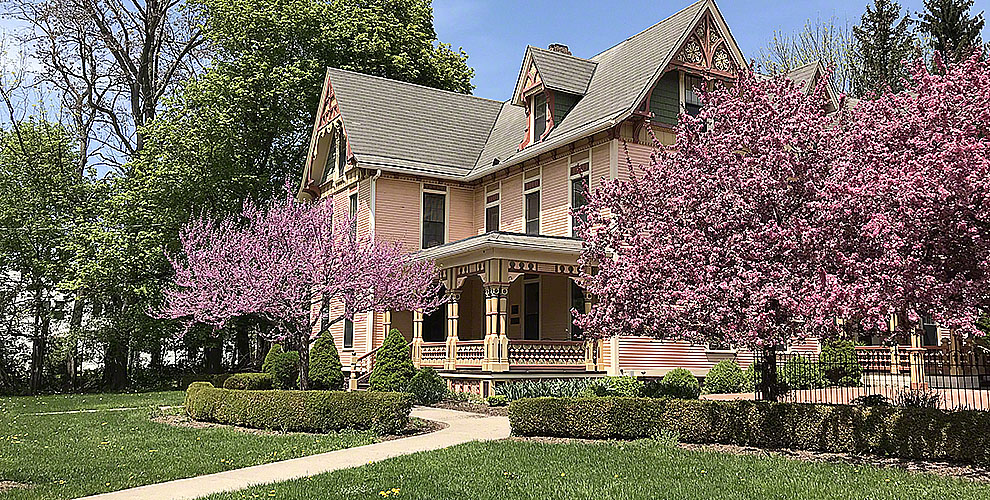Choosing the right drinking water system for your home is important because it directly impacts your family’s well-being. Clean water is essential for maintaining good health and preventing waterborne illnesses. A reliable water filtration system ensures that the water you drink is free from harmful contaminants like bacteria, chemicals, and heavy metals.
Choosing The Right Drinking Water System
With so many options available, it can be overwhelming to decide which system is best for your needs. Each system offers different benefits, such as improve the taste, odor reduction, and the removal of specific pollutants. By understanding your household’s specific water quality concerns and daily consumption habits, you can makethe right choice that provides safe and clean water for your entire family.
Assess Your Water Quality
Start by checking your water quality. You can get a water test done. This will show what contaminants are in your water. Some areas have hard water. Others may have high chlorine levels. Knowing what’s in your water helps you decide on the right system. For example, if you have hard water, you might need a different system than someone with high chlorine.
Understand Different Water Systems
There are different types of water systems. Each has a unique purpose.
Reverse Osmosis Systems
Reverse osmosis systems are popular. They remove most contaminants. These systems use a membrane to filter water. The water passes through, leaving contaminants behind. This process ensures clean and safe water. However, they can waste some water. They also need regular maintenance. But they are effective in removing many impurities.
Activated Carbon Filters
Activated carbon filters are another option. They are good at removing chlorine and odors. These filters use carbon to trap contaminants. The water flows through the carbon, which absorbs the impurities. This system is simple and effective. It’s also easy to install and maintain. But it might not remove all types of contaminants. However, it’s a good choice for improving taste and smell.
Ultraviolet (UV) Filters
UV filters are useful for killing bacteria and viruses. They use ultraviolet light to sterilize water. This system is good for well water or areas with microbial contamination. The UV light destroys harmful organisms, making the water safe to drink. However, it doesn’t remove chemicals or sediments. It’s often used in combination with other systems. UV filters are a strong choice if you worry about germs in your water.
Consider Your Household Needs
Think about the needs of your household. The size of your family matters. A large family might need a system with a higher capacity. The type of water system should match your usage. For example, reverse osmosis systems can be slow. They might not keep up with a large family’s demand. In contrast, a carbon filter might be enough for a smaller household.
Budget and Maintenance
Budget is another important factor. Water systems vary in cost. Reverse osmosis systems are usually more expensive. Carbon filters are more affordable. But remember, initial cost isn’t everything. Maintenance costs add up over time. Some systems require frequent filter changes. Others need less upkeep. Consider both upfront and long-term costs when choosing.
Space and Installation
Space is also a key consideration. Some systems need more space. Reverse osmosis systems usually go under the sink. They require more room for the tank and filters. Other systems, like countertop filters, need less space. Before buying, measure your available space. This ensures that your chosen system fits in your home.
Certification and Standards
Look for certifications when choosing a system. Certified systems meet specific standards. The NSF certification is one to look for. It means the system has been tested and is effective. Certification provides peace of mind. You know you’re getting a system that works. Always check for these certifications before buying.
Water Filtration Systems for Different Needs
Different water systems serve different purposes. It’s important to match the system with your needs.
Systems for Hard Water
If you have hard water, a whole house water filtration Meadville might be necessary. Hard water contains minerals like calcium and magnesium. These can cause scale buildup in pipes. A water softener removes these minerals. It replaces them with sodium or potassium ions. This prevents scale and extends the life of your pipes. However, softened water might not taste as good. You might need a separate filter for drinking water.
Systems for Chlorine Removal
If your water has a strong chlorine taste, a carbon filter is a good choice. It effectively removes chlorine, improving the taste. This type of system is easy to install and maintain. It’s also affordable. But it might not remove all contaminants. If chlorine is your main concern, a carbon filter is a strong option.
Systems for Microbial Contamination
For well water or areas with microbial issues, a UV filter is ideal. It kills bacteria and viruses, making the water safe to drink. UV systems are often used with other filters. This combination ensures that your water is free from harmful organisms. However, it won’t remove chemicals or sediments. Consider pairing it with a reverse osmosis or carbon filter system.
Comparing Whole-House vs. Point-of-Use Systems
Water systems can be whole-house or point-of-use. Each type has its advantages.
Whole-House Systems
Whole-house systems treat all the water in your home. This includes water for drinking, cooking, and bathing. These systems are ideal if you want consistent water quality throughout your home. They are more expensive but offer comprehensive filtration. A whole-house system might be necessary if your water has multiple issues.
Point-of-Use Systems
Point-of-use systems treat water at specific locations. This could be your kitchen sink or a bathroom tap. These systems are smaller and less expensive. They are easier to install and maintain. A point-of-use system is a good option if you only need to treat drinking water. They are also great for renters or small homes.
Making the Final Decision
Choosing the right water system involves several steps. Start by testing your water quality to prevent allergens. Understand the different types of systems available. Consider your household needs and budget. Think about space and installation. Finally, check for certifications. By following these steps, you can make an informed decision.
Installing Your Chosen System
Once you’ve chosen a system, installation is the next step. Some systems are easy to install yourself. Others might require professional help. Follow the manufacturer’s instructions carefully. Ensure that all connections are secure. Regular maintenance is key to keeping your system working properly. Replace filters as needed. Clean the system according to the instructions. Proper care ensures that your water stays clean and safe.
Conclusion
Choosing the right drinking water system for your home is important. Start by understanding your water quality. Different systems serve different needs. Consider your household size, budget, and space. Look for certified systems. Finally, install and maintain your system properly. Once you’ve made your choice, focus on proper installation and maintenance, including water softener Warren installation.


